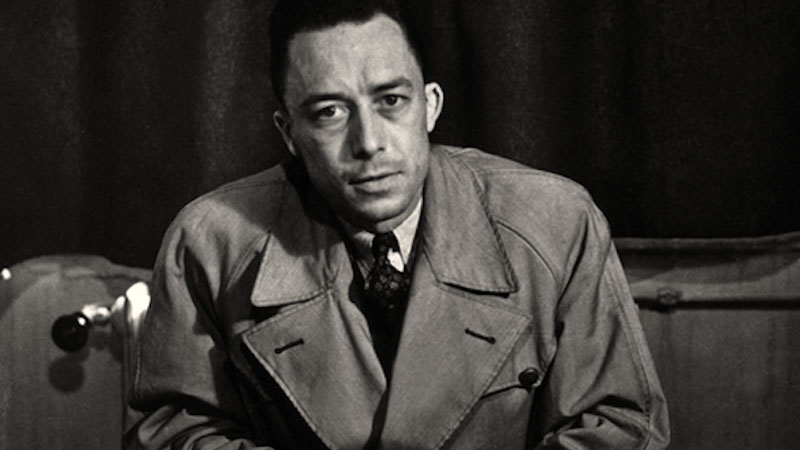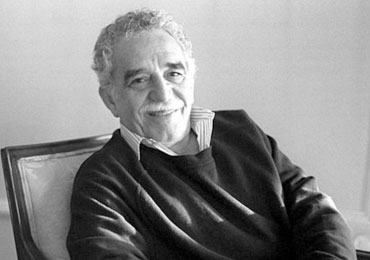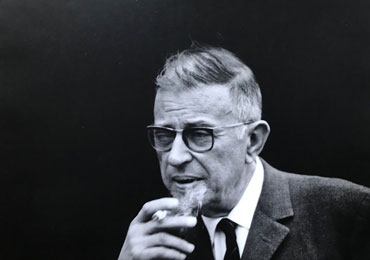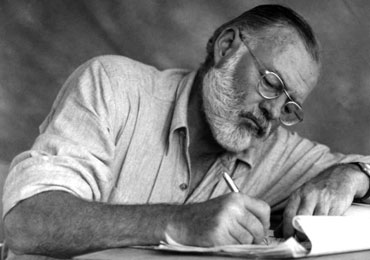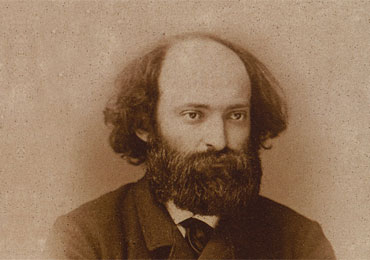Albert Camus (Biography, Works, & Mind Maps)
Albert Camus was born in 1913 and was one of the most famous French Algerian writers. Albert Camus was known for his absurdist and out-of-the-box work themes and books written, including The Stranger and The Plague. Albert Camus also won Nobel Prize for his work in literature and for being an agent of non-metropolitan French literature because of his career. His starting point in Algeria made his encounters that impacted his ideas, thinking, writing style, and works in his thirties. He early appended to scholarly circles of unequivocally progressive propensities, with a profound interest in thinking (just possibility kept him from seeking after a college profession in that field), because of that, when he was 25, he came to France.
The man and the occasions met: Camus joined the resistance development during the occupation and after the freedom was a journalist for the paper Combat. Be that as it may, his editorial exercises had been primarily a reaction to the requests of the time; in 1947, Camus resigned from political news coverage and, other than composing his fiction and papers, was highly dynamic in the auditorium as the maker and play essayist.
Early Life
At the initial time, Albert had a very normal family with both of his parents; however, that changed when Alert's father Lucien Camus participated in World War one and died on the battleground of Marne. This led to the one-year-old Camus being raised by his strict mother. Albert's mother had minimal experience raising a child and was relatively sad and depressed. It was quite shocking that he invested quite a bit of his energy with games, studies, and essential low maintenance work. Camus worked with his own concepts and understanding of philosophy and expressed his life battles in his initial works as Camus's subsequent hardship was acquiring a college degree to get his undergraduate degree when he completed school.
Camus was eager and goal-oriented about his investigations, yet he couldn't finish them right away. In 1930, while he was studying at the University of Algiers doing an undergraduate degree in philosophy, he nearly died because of tuberculosis. This sickness would gradually distress his condition for a long time. At that point, after his recovery, he was plagued by the ongoing issue of poverty and had to help himself for quite a long while as a meteorologist, a police assistant, and a sales rep.
Career and family
From the initial years of his life, Albert suffered due to family issues after his father's death. His mom, Catherine Sintes, was an illiterate lady with Spanish roots who filled in as a cleaner. Catherine Sintes moved her children, Lucien and Albert, into her mom's loft in Algiers' average Belcourt neighborhood.
Camus grew up when the French schooling framework was at its pinnacle. He did exceptionally well during his school and was a pleased and sure youthful Frenchman. Camus had an unpleasant and helpless childhood, yet he appreciated playing soccer, investing energy in the ocean, and absorbing the Mediterranean sun.
Notwithstanding, he got tuberculosis at seventeen years old, which troubled him consistently for the remainder of his life. Despite his illness, he kept on leading an open-air life. He was fiery and attractive and a rugged charmer of ladies. However, when he got married, the marriage, unfortunately, did go well, which is why later on, he separated from his wife. After the divorce, he joined the Communist Faction that he also left after some time. In 1935, a year before he got his philosophy degree from the university, he found about The Workers' Theater, a gathering framed to introduce Algiers' working people population ideas and plans. Before his performance theatre endeavor was completed, Camus published one of his re-known works, L'Envers et L'endroit(Betwixt and Between), in 1939. These articles dealt with men and demise and everything about the oblivious universe a man lives in.
These articles are the temperament pieces, written in the absurd writing style of Camus' combination of contradiction, lyricism, and philosophy portraying humankind's un-relentless, powerlessness, and feeling isolated in a grand universe the only rule is for us to pass without questioning it. However, there is confidence in these articles; here, Camus's first supporters lived as though people had eternal value. Albert Camus highly believed that only in our valiant rebellion to face ourselves and our world would we start to make a society that can save itself from a nihilistic calamity.
Work
The predominant philosophical commitment of Camus' works was a lot about the absurdity of humankind and the universe. Because of this, most of his works were known under the category of absurdism. While his writing style and theme were often connected with existentialism, he dismissed the name, communicating shock that he rather be liked to call as a philosophy head of Sartre. Components of absurd thoughts, concepts, and existentialism are all mentioned in Camus' highly praised composing and writing. The Myth of Sisyphus (1942) clears his ideas and views in the most ridiculous yet straightforward way. The main perspective and plot of The Myth of Sisyphus was the idea to differentiate the basic idea of conflict on what he wants from the universe and what it gives back to him. He briefed about the straightforward get a brutal way of how the universe works, and it’s a reason as well. He also explained the different results from the universe as well in addition to that The Stranger (1942) and The Plague (1947) are all about standing up for all the craziness of society and social orthodoxies, with disparate results. The plot of the stranger goes around the life of Meursault, who was a young man based in the French Algiers region. He was a very isolated person who just got the news of his mother's death, leading him to go to her funeral. The story revolves around his meetings with other attendees and his further journey to leaving his detached behavior. On the other hand, the plot of The Plague goes around the arrival of rats in the Algerian region located in Iran and the whole issue of burning the rats.
As an Algerian citizen, Albert Camus brought a new, fresh perspective to French literature of the time frame — which mainly was compared to Paris's metropolitan literature. He did not add the books and plays he wrote and was present in the performance center during the 1940s through the '50s. After that, all of his creative abstract works were contributed to The Fall released in 1956, and Exile and the Kingdom in 1957.
After a year, both Camus's works, The Stranger and The Myth of Sisyphus, were published, and Camus was set up as an author of worldwide significance. No other time did the people finally knew about a man. The Stranger's Meursault became the highly praised abstract archetype, and the starting lines of The Stranger became the most inseparable from a silly or unexpected circumstance. At who was so genuine as Meursault? Indeed, his trustworthiness is maybe his solitary praiseworthy quality.
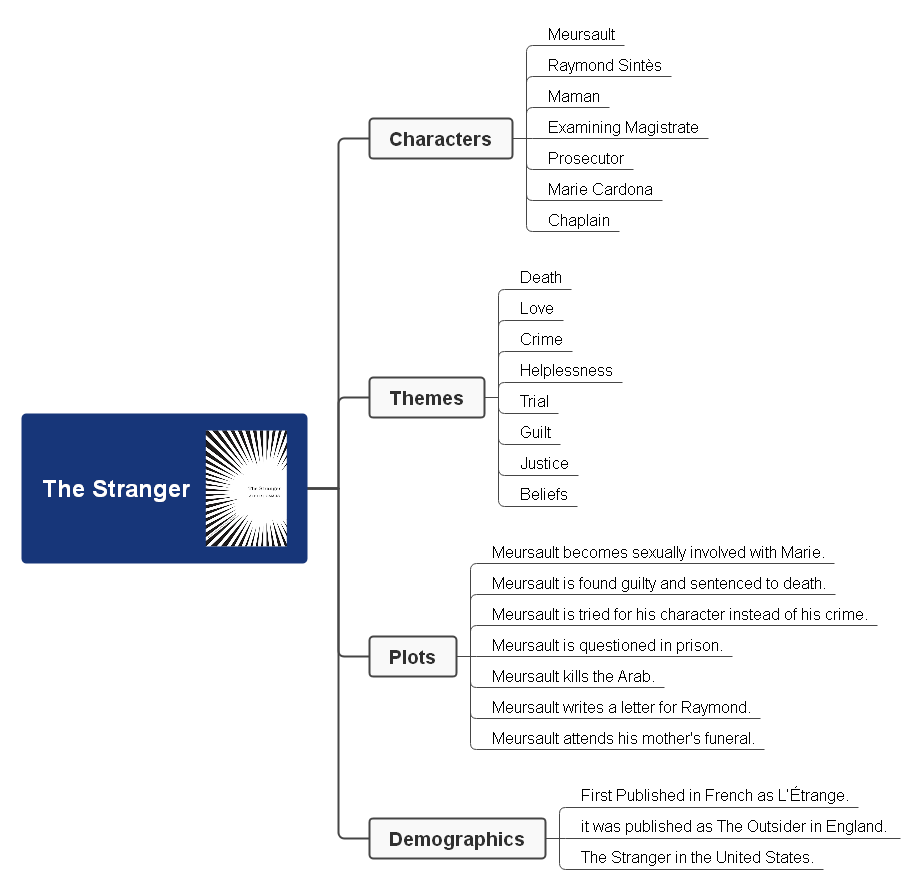
Achievements
In 1949, when Camus re-visited France coming back from a visit to South American, he ended up being ill and almost got himself stuck in seclusion. Because of his illness, he occasionally published collections of a more critical measure of his political articles. In 1951, when he finally recovered, he published an extensive examination of metaphysical, historical, and inventive revolt, The Rebel.
In 1956, Camus published another fictional work, and the novel was called The Fall. The book plotline was about a very successful, well-known, and regarded lawyer who suddenly faced his soul on not helping a lady choking in a self-obliteration. He intentively added harsh and brutal facts about the system and the society and how it goes a certain way without considering kindness and empathy. The Fall isn't as enthusiastic or as long as his other novel, The Plague, yet it is known to be as polished and as artful culmination as The Stranger. After that year, Camus was nominated for the Nobel Prize for Literature and won it.
Death
As years passed, Alberts career was quite a success. He basically had it all, from health to wealth; however, Camus got into a car incident that killed him on 4 January 1960. After his death, a lot of articles mentioned the suddenness of his death. The accident was a big shock for most people as Albert was a pretty healthy individual, which is why many people felt the grief of his death. However, his work and career as an essayist end with his sudden death, as most of his work was influenced by his life and his day-to-day struggles. Even in this era, his work is cherished by millions of people and included in my academic courses such as literature and philosophy.

